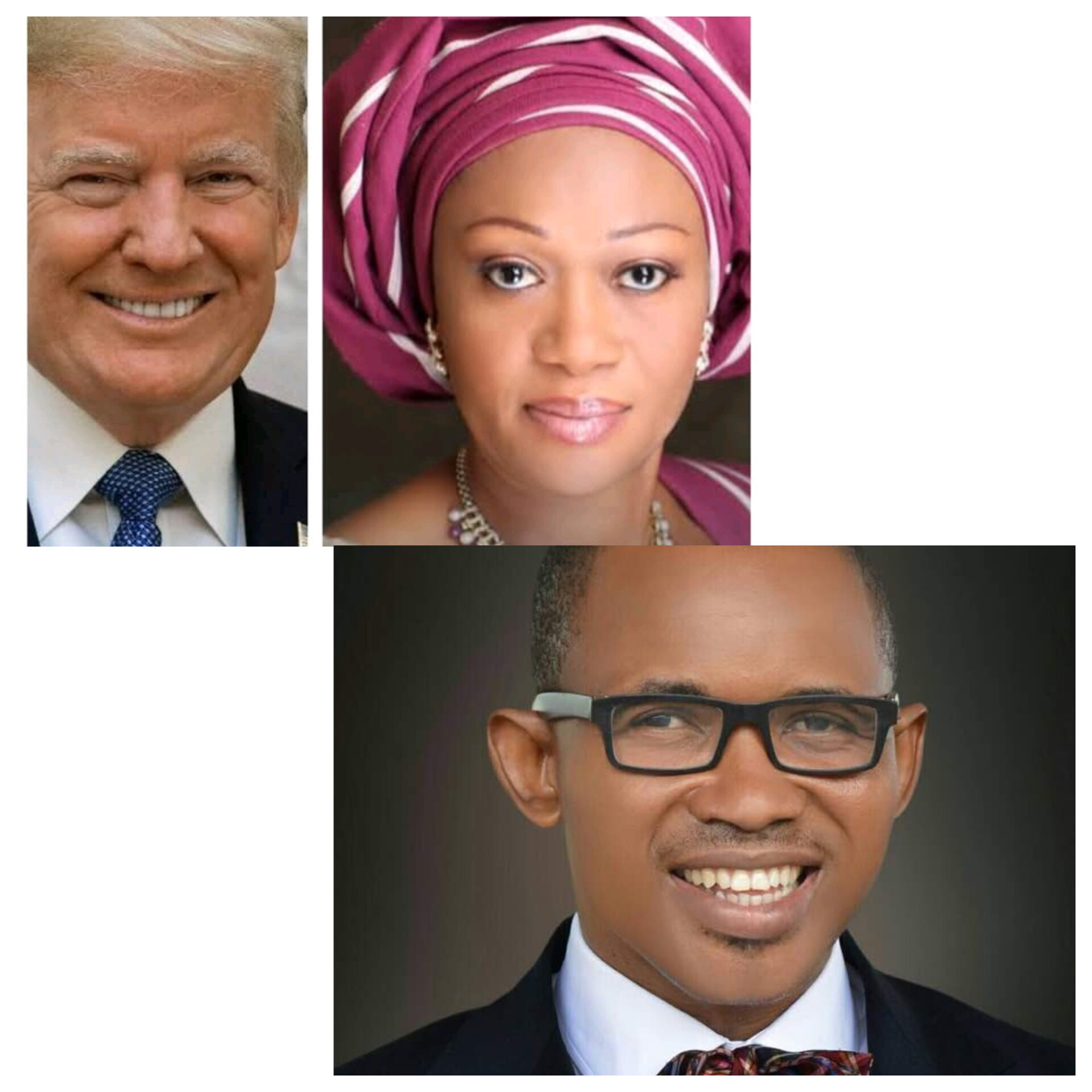Bridging the Gulf: Harmonizing Economic Visions for a Prosperous Nigeria. By Chidi Ekeh

Bridging the Gulf: Harmonizing Economic Visions for a Prosperous Nigeria

Introduction
In the dynamic landscape of economic governance, the synchronization of fiscal and monetary policies is imperative for a nation’s sustainable development. This essay delves into the subtle discrepancies between President Bola Tinubu’s 2024 budget presentation speech and the vision articulated by Mr. Olayemi Cardoso, the Central Bank of Nigeria (CBN) Governor. As we scrutinize these speeches, we will unravel the intricacies that demand alignment for a more cohesive and effective economic trajectory. This analysis urges the Tinubu administration to realign its vision with the CBN’s aspirations, advocating for collaboration between the Executive and Legislative branches to foster a harmonized economic agenda.

Section 1: President Tinubu’s Budget Vision
President Tinubu’s Budget of Renewed Hope for the year 2024 unfolds as a comprehensive roadmap for Nigeria’s economic future. The highlights of his speech revolve around macro-economic stability, infrastructure development, performance evaluation of the 2023 budget, national defense and internal security, local job creation, macroeconomic stability and investment, environmental optimization, human capital development, poverty reduction, and social security.
1.1 Macroeconomic Stability and Investment

President Tinubu’s emphasis on macroeconomic stability and the promotion of both foreign and domestic investment is commendable. However, a nuanced analysis reveals potential disparities with the CBN’s vision. While the budget underscores the importance of stability, the devil lies in the details of the policies that will be implemented. The CBN Governor, Mr. Cardoso, may harbor specific monetary strategies that require close alignment with the fiscal policies proposed in the budget.
1.2 Infrastructure Development
The budget rightly prioritizes infrastructure development to address structural issues in the economy. Yet, the details on how the government intends to fund and execute these projects need closer scrutiny. Mr. Cardoso’s vision for economic management may hinge on a delicate balance between fiscal expansion and monetary policies that necessitate infrastructure investments.
1.3 Performance of the 2023 Budget
Acknowledging the challenges in implementing the 2023 budget is a commendable aspect of President Tinubu’s speech. However, understanding the intricacies of these challenges and proposing concrete measures to address them is crucial for effective governance. The CBN’s role in managing monetary factors impacting budget execution should be recognized and integrated into the proposed solutions.
Section 2: Mr. Olayemi Cardoso’s Vision
Mr. Olayemi Cardoso, in his recent speech at the CIBN annual dinner, provided insights into his vision for the CBN’s role in steering Nigeria’s economy. His focus on refocusing the CBN on core mandates, addressing inflation and currency stability, outlining policy thrust, managing investor expectations, and emphasizing banking sector regulation presents a comprehensive strategy for economic governance.
2.1 Refocusing the CBN
Cardoso’s emphasis on refocusing the CBN aligns with the need for a more streamlined and efficient monetary policy framework. The challenge lies in integrating this refocusing with the fiscal policies proposed in the 2024 budget. A collaborative effort between the CBN and the executive branch is paramount to ensure a cohesive approach.
2.2 Inflation and Currency Stability
The CBN Governor’s commitment to tackling inflation and ensuring currency stability is a vital component of economic management. However, the effectiveness of these measures may be influenced by the fiscal policies outlined in the budget. A meticulous analysis of the budgetary allocations and their impact on inflation is necessary to ensure a congruent approach.
2.3 Policy Thrust and Investor Expectations
Cardoso’s articulation of a clear policy thrust is crucial for managing investor expectations. The budget should complement this vision by providing a transparent and consistent fiscal policy framework. Discrepancies between the two could lead to uncertainty in the business environment, hindering investment and economic growth.
2.4 Banking Sector Regulation
The CBN Governor’s emphasis on robust banking sector regulation resonates with the need for a stable financial system. The alignment of fiscal policies with these regulatory measures is essential to ensure the health and growth of the banking industry. An incongruity between the budget and regulatory objectives may undermine the stability of the financial sector.
Section 3: Unraveling Discrepancies and Calling for Alignment
3.1 Bridging the Gulf: Collaboration for Economic Synergy
While both President Tinubu and Mr. Cardoso articulate comprehensive visions for Nigeria’s economic future, the devil lies in the details of policy implementation. The government should recognize the symbiotic relationship between fiscal and monetary policies, acknowledging that an integrated approach is necessary for sustained economic development. Collaboration between the Executive and the CBN is imperative to ensure that the macroeconomic objectives outlined in the budget align seamlessly with the monetary strategies envisioned by the CBN.
3.2 Macro-Economic Stability: A Shared Objective
Both President Tinubu and Mr. Cardoso emphasize the importance of macroeconomic stability. However, the budget should provide more specific details on how this stability will be achieved. The CBN’s role in maintaining price stability and currency stability should be integrated into the fiscal policies, ensuring a harmonized effort towards achieving the shared objective.
3.3 Infrastructure Development: Financing and Execution
While the budget prioritizes infrastructure development, the financing and execution mechanisms need to be aligned with the CBN’s vision for economic management. The government should explore avenues for collaboration, leveraging monetary tools to support fiscal initiatives. Public-private partnerships and innovative financing models could be explored to ensure that infrastructure projects contribute to economic growth without straining the fiscal space.
3.4 Performance Evaluation: A Joint Endeavor
Acknowledging the challenges in the implementation of the 2023 budget is a step in the right direction. However, the collaboration should extend to a joint evaluation of the factors affecting budget execution. The CBN’s insights into monetary conditions and their impact on budget implementation should inform the government’s strategies for overcoming challenges and ensuring effective governance.
3.5 Inflation and Currency Stability: A Unified Front
Addressing inflation and ensuring currency stability requires a unified front between fiscal and monetary authorities. The budget should align with the CBN’s strategies for managing inflationary pressures and stabilizing the currency. A comprehensive analysis of the budget’s impact on inflation, coupled with collaborative efforts to address potential challenges, is essential for achieving the shared goal of economic stability.
3.6 Policy Consistency and Investor Confidence
The government’s fiscal policies should exhibit consistency with the policy thrust outlined by the CBN Governor. This consistency is crucial for managing investor expectations and instilling confidence in the business environment. Discrepancies between fiscal and monetary policies can lead to uncertainty, hindering investment and economic growth. Therefore, the government should ensure that its policies complement the CBN’s vision, fostering a conducive environment for both domestic and foreign investors.
3.7 Banking Sector Stability: A Converging Agenda
Recognizing the importance of robust banking sector regulation, the government should work in tandem with the CBN to ensure a stable financial system. Fiscal policies should align with regulatory measures to promote the health and growth of the banking industry. This collaboration is essential to prevent any incongruity that might compromise the stability of the financial sector, with potential ripple effects on the broader economy.
Conclusion
In conclusion, the economic visions articulated by President Bola Tinubu and Mr. Olayemi Cardoso for Nigeria are comprehensive and ambitious. However, a nuanced analysis reveals subtle discrepancies that, if not addressed, could impede the nation’s path to prosperity. The call for alignment between the 2024 budget and the CBN’s vision is not just a matter of policy coherence; it is a necessity for sustained economic development.
The government must recognize that the success of its fiscal policies hinges on a collaborative effort with the CBN. Bridging the gulf between the executive and monetary authorities is imperative for achieving macroeconomic stability, infrastructure development, and overall economic growth. This essay serves as a call to action, urging the Tinubu administration to realign its vision with the aspirations of the CBN Governor. The National Assembly, particularly its committees on Finance, plays a crucial role in facilitating this alignment by scrutinizing and guiding the executive to ensure that fiscal policies are in harmony with the CBN’s macroeconomic strategies.
The synergy between fiscal and monetary policies is not just a technicality; it is the linchpin for Nigeria’s economic success. From my chat with economists of note, the plea is for a comprehensive and integrated approach that recognizes the interdependence of these policies. In this endeavor, the government and the CBN must forge a collaborative partnership, transcending political boundaries for the collective goal of a prosperous and stable Nigerian economy.
Hon. Chidi Ekeh a member of Ebony Herald International Magazine Editorial board, writes from Abuja




